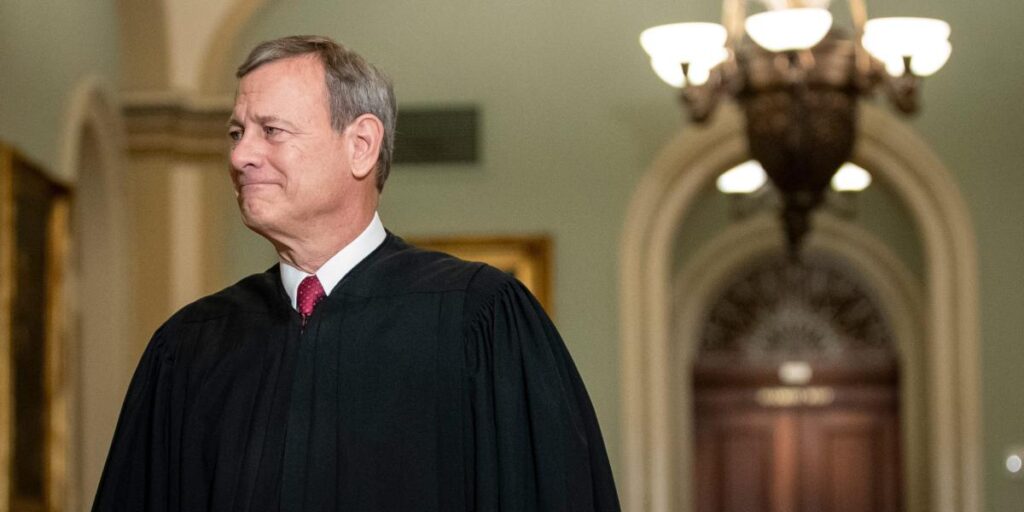-
On Friday, the Supreme Court struck down President Biden’s student-loan forgiveness plan.
-
Chief Justice John Roberts said in his opinion that the Secretary of Education wasn’t the proper person to implement it.
-
The Supreme Court thinks it’s a matter suited to the legislative branch, rather than the executive one.
The Supreme Court just struck down President Joe Biden’s student-loan-forgiveness program — and it’s because, in part, they don’t think Biden’s Education Department was the right entity to get the job done.
A primary issue was Education Secretary Miguel Cardona’s usage of the HEROES Act of 2003 to enact relief, which allows the secretary to — in theory — waive or modify student-loan balances in connection with a national emergency. The Biden administration was adamant that it was the appropriate law to use in connection with COVID-19, to give borrowers financial relief during and after the pandemic.
In his opinion, Chief Justice John Roberts scathingly wrote that the Secretary of Education’s plan “has ‘modified’ the cited provisions only in the same sense that ‘the French Revolution ‘modified’ the status of the French nobility’—it has abolished them and supplanted them with a new regime entirely.”
And so, the court is probing not whether loans should be forgiven, but whether the right entity was making the push.
“The question here is not whether something should be done; it is who has the authority to do it,” Roberts concluded. He surmised that the program might be more in Congress’s wheelhouse, specifically the House and Senate Committees on Appropriations, rather than with the executive branch.
The two conservative-backed lawsuits that blocked Biden’s debt relief both challenged Cardona’s authority to use the HEROES Act to cancel student debt for millions of borrowers — and it was something conservative justices were skeptical of during oral arguments in February.
“Given the posture of the case, and given our historic concern about separation of powers,” Roberts said. “You would recognize at least that this is a case that presents extraordinarily serious, important issues about the role of Congress and about the role that we should exercise in scrutinizing that?”
But even if the issue is punted to Congress, that’s unlikely to result in relief for borrowers. Both chambers have previously pushed through legislation that would actually block relief, and a Republican-controlled House is likely unwilling to move any form of relief similar to Biden’s forward.
It’s unclear at this point what Biden will do next. Importantly, this decision does not strike down student-debt relief entirely — it just ruled that the president cannot carry out his plan using the HEROES Act. So he could potentially enact a plan to deliver relief using another law, like the Higher Education Act of 1965, which does not rely on a national emergency. It’s something that Democratic lawmakers have pushed for in the past, and are continuing to do following the Friday ruling.
“The President has more tools to cancel student debt — and he must use them,” Massachusetts Sen. Elizabeth Warren wrote on Twitter. “More than 40 million hard working Americans are waiting for the help that President Biden promised them, and they expect this administration to throw everything they’ve got into the fight until they make good on this commitment.”
Read the original article on Business Insider
[ad_2]
Source link

